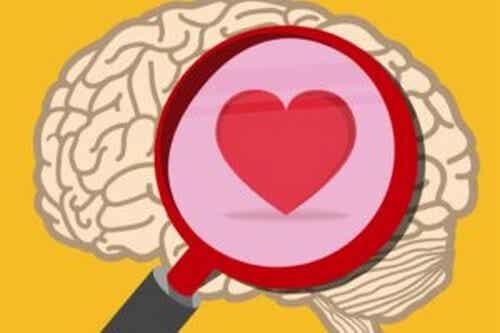Feeling fear and uncertainty during the current COVID-19 pandemic is normal. However, it is important to keep the most negative and pessimistic thoughts in check. Only in this way will we find in our mind a great ally to overcome this period.

Written and verified by the psychologist GetPersonalGrowth.
Last update: 15 November 2021
Having negative thoughts related to COVID-19 is absolutely normal. Perhaps knowing that at this moment much of the world experiences the same feelings, the same fear and the same uncertainty, can help us feel less alone and more united. It is essential to control the universe of our mind in order not to fall into states of despair.
As we have already had the opportunity to point out in our articles, the current coronavirus crisis must be addressed not only in terms of body care. In such circumstances, it is essential to take care of one's psychological well-being.
Factors such as home isolation, the distance from the people we love, the feeling of not knowing what will happen in the next few days can breach our internal balance.
In such an unpredictable context, we must use all the resources at our disposal. But emotions test us, and we have every right to let ourselves fall from time to time, to seek a momentary refuge in sadness. The important thing is to always keep our thoughts and attitudes under control.
It is now clear to everyone, if there is one thing that spreads faster than the coronavirus it is panic. We have a moral obligation not to succumb to fear in order to continue to be useful for ourselves and for others. This is the time to activate resources we didn't think we had.
How to control negative thoughts related to COVID-19
Global bodies such as the WHO or the American Psychology Association (APA) have made it clear. The population was warned about the importance of washing their hands often, of remaining in isolation at home, of keeping their distance and going out as little as possible. These measures reduce the risk of infection, but turn people into anxiety capsules about to explode.
The coronavirus pandemic has been with us since late 2019 and is advancing fast. Not only by producing infections (in most cases mild), but also by disrupting lives, projects, jobs, studies and short-term goals.
At the moment we are only figures placed in a crystal ball, but our mind is the one that will suffer the most. So let's find out how to control negative thoughts related to COVID-19.
I will get infected and everything will go wrong. I will lose a family member
Fear of getting infected or even dying are among the most common thoughts in this situation, and are fueled by fear. Well, it is normal for some idea of this type to cross our mind. If it does, it's for a reason: to protect us and our loved ones.
However, we cannot allow these thoughts to be constant throughout the day, every day. Thus we risk paralyzing the mind and falling into panic. What can we do in these circumstances?
- It is necessary to analyze the realist point of view. Yes, the risk of contagion exists, but if we take the appropriate measures, the risk is significantly reduced.
- The probability of a family member dying or dying is also real, but we must look at the statistical data: the mortality rate ranges from 3 to 5%, and it particularly affects the most vulnerable sections of the population (and that we must protect).
- Whenever we are struck by these ideas, we have to rationalize them and put them in the mental drawer where we keep all the ugliest and most distressing thoughts. We have to lock them up.
Negative thoughts linked to COVID-19: this anguish will never end
This type of reasoning is called "affective forecasting" in psychology. We implement it when we predict how we will feel tomorrow, the day after and next month. It is normal to do this when we allow ourselves to be overwhelmed by the most adverse emotions such as panic or anguish. Instead of managing them, we give them absolute power.
On the other hand, it must be recognized that it is one of the most recurrent negative thoughts related to COVID-19. It is the belief that this social isolation will last forever or that it will get the better of us. We must keep this in mind: the chances of managing this reality depend on our ability to control our minds.
One way to do this is to regulate our emotional universe. Relaxing, meditating, engaging in distracting activities, or talking to loved ones can help.
Also, when you feel this way, ask yourself how many times have you had the feeling of an anguish that will never go away, but is eventually gone. Be calm, everything will pass.
I will lose my job and the world as we know it will change
Among the most common negative thoughts during the COVID-19 pandemic is that of losing your job and that things will change forever.
In this case, we are not faced with an irrational fear. It would be naïve to convince us that once the advance of the virus is halted, things will return to exactly the same as before. There is a good chance that many jobs will be lost. How then to manage this fear?
- By focusing on the priorities of every single moment. Now the most important thing is to take care of us, stay safe, protect ourselves and stop the contagion curve. This is the current priority that we can control because it is in our hands.
- We do not know what will happen tomorrow, it is true, but whatever it is we will face it calmly. When the time comes, we will act. One thing at a time, step by step, day by day, always in a conscious, concentrated way.
Finally, this pandemic will end. That's for sure. Humanity has already faced and overcome similar scenarios, and today we have much more advanced means and resources. We are extraordinary when we work together, just like we are doing at the moment.
Being afraid is completely normal, but we have to control our emotions, use them in our favor and remember what our priorities are: physical health and psychological well-being.

























